If you’re planning to purchase a property, the cost of conveyancing – Qld is something you’ll need to consider.
What is conveyancing?
Conveyancing is the legal procedure of buying and selling property through which ownership of real estate is transferred from the seller (vendor) to the buyer.
In Queensland, only licensed solicitors are authorised to deliver paid conveyancing services. Conveyancing solicitors take legal responsibility for the conveyancing, but they often employ conveyancing staff, or paralegals, to assist them.
How much does conveyancing cost in Qld?
Now that you know you’re going to need a conveyancing solicitor, you’re probably wondering how much conveyancing will cost.
The cost of conveyancing services in Qld will vary, but, as a general rule, conveyancer fees will range between $600 and $1,300. This may or may not include other professional fees (e.g. settlement agent fees, PEXA fees) and/or a disbursement fee for the cost of searches and other out-of-pocket expenses.
Always ask for a detailed quote for your conveyancing fees, or for the details of what is included in a set price.
If you need more information on how much does conveyancing cost in Qld, keep reading as we look in more detail at the conveyancing fees and legal processes.
What will your conveyancing solicitor do to earn their fee?
Your conveyancing solicitor will have the necessary knowledge to ensure the transfer of legal ownership occurs without delays or problems. Buying a home is likely to be the largest financial transaction of your life, so it’s good to have a conveyancing solicitor on hand.
Step 1: Contract and deposit
You’ll begin by signing a contract of sale that will have been prepared beforehand by the solicitor who represents the vendor (seller) of your property.
This contract will specify the terms of the property transaction, including the sale price, the payment timeline and any other specific conditions.
If the property is sold at auction, the highest bid above the reserve price becomes a binding verbal contract. A property’s reserve price is the minimal amount that the vendor will accept for the sale of the property. It is held in confidence as the auction begins, although the auctioneer will usually announce when this price has been reached in the hope of promoting greater competition among bidders.
The winning bidder will normally sign the contract of sale immediately after the auction ends.
The contract will state the amount required as a deposit, in order to give the transaction full legal force. Usually, this deposit is 10% of the property purchase price.
 Step 2: Time to cool off
Step 2: Time to cool off
Queensland property law provides for a cooling-off period of five days following the private sale of residential property. This permits the property buyer to cancel the transaction even after contracts are signed. The provision is designed to enable home buyers to withdraw from a purchase that may have been made on impulse.
The Queensland cooling-off period commences the day purchasers receive a copy of the contract signed by both parties.
Keep in mind that there is NO cooling-off period for a property purchased at auction. The cooling-off period also doesn’t apply to a private sale negotiated within two business days following an unsuccessful auction where the purchaser was a registered bidder.
You must provide written notice of your decision to withdraw from the sale and that notice must be received by the seller before 5 pm on the fifth day of the cooling-off period.
It is your responsibility to ensure your written notice is received before the deadline. The seller must refund your deposit payment within 14 days, but may keep 0.25% of the purchase price as compensation for the cancelled contract.
Step 3: Conveyancing
Try to line up a professional conveyancer before you sign the contract to purchase your new home. This will also give you time to select a conveyancing solicitor with a good track record and with whom you feel comfortable.
In addition, you’ll get a clear idea of how much does conveyancing cost in Qld and can factor those costs into your budget.
The first and most important task your conveyancing solicitor will perform is a title search to verify whether:
- the vendor is the legal owner of the property to be sold
- legal or financial obstacles exist that might prevent the transfer of legal ownership such as:
- outstanding mortgage debt
- caveats by third parties. A caveat is a legal document lodged with the courts that warns potential purchasers that someone other than the vendor has a claim on the property, or is owed money by the vendor.
- the property includes easements that enable third party access for specific purposes. Common easements include a right of entry to utility workers to work on electricity or water infrastructure
- the property includes covenants placing limits on the owner’s ability to exercise personal preferences on the home’s external features
- other special conditions in the contract of sale are fulfilled
- council rates, land tax and water rates are paid up to the date of property transfer.
After your conveyancing solicitor has checked all these issues and resolved any problems, they’ll draw up the legal documents for the formal transfer of ownership.
Step 4: Requisitions as to title
Requisitions as to title are a provision of the Land Title Act 1994 (QLD) that enables property purchasers to require disclosure of any information pertinent to the house purchase that may not have been found during the title search. The requisitions as to the title part of the conveyancing process are a good way for you to double-check there are no unexpected problems that might interfere with the legal transfer of ownership.
 Step 5: Transfer duty
Step 5: Transfer duty
What is known as ‘stamp duty’ in other Australian states is called ‘transfer duty’ in Queensland. Stamp duty is a state government transaction tax imposed on home buyers. It’s calculated as a percentage of the dutiable value of a property, which in most cases will be the purchase price.
Queensland does provide various concessions to residential home buyers if the home purchase is your primary residence. To exercise this concession you must move your personal belongings into the home and live there on a regular basis within one year after the purchase date.
This concession rate can save you up to a maximum of $7,175 in stamp duty and is not restricted to first-time home buyers. It applies to the first $350,000 of the property value, with general stamp duty rates applying to the remainder of the purchase price.
Transfer duty rates
| Purchase price/value | Duty rate |
|---|---|
| $350,000 or less | $1.00 for each $100 or part of $100 |
| $350,001 to $540,000 | $3,500 plus $3.50 for every $100 or part of $100 over $350,000 |
| $540,001 to $1,000,000 | $10,150 plus $450 for every $100 or part of $100 over $540,000 |
| $1,000,001 or more | $30,850 plus $5.75 for every $100 or part of $100 over $1,000,000 |
Source: Queensland Government
If you’re a first home buyer an additional concession will lower the amount of stamp duty even further.
Step 6: Settlement
On the day agreed by both parties for settlement, your conveyancing solicitor and a vendor representative will hold a meeting to finalise the sale. This conference can be held in person, but may also be conducted using the PEXA digital property settlement platform. If PEXA is used, the final exchange of documents and monies will take place online.
Once the documents are exchanged, either physically or digitally, they’ll be lodged with Titles Queensland, which is the state land registry office. For this service, Titles Queensland will charge you a lodgement fee, which is 0.2762% of your property’s purchase price.
To give you some idea, let’s say you purchase a home for $500,000 – then you’ll end up owing a lodgement fee of $1,381.
If you purchase your home outright, you’ll receive the Certificate of Title. But, if you’ve taken out a mortgage for your property, your bank will retain the Certificate of Title until your loan is paid in full.
Are you looking at how much does conveyancing cost in Qld?
You’re in luck because Entry Conveyancing’s Luke Primon is a property solicitor who can help with every legal aspect of buying and selling property.
How much does conveyancing cost in QLD? Entry Conveyancing fees are a fixed fee quality service of $895 for conveyancing.
There are no surprises and no hidden conveyancing costs involved.
Contact us today for a free confidential chat about conveyancer fees – Qld.


 Step 2: Time to cool off
Step 2: Time to cool off Step 5: Transfer duty
Step 5: Transfer duty
